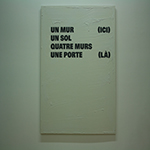Euroacademia Conferences
 Europe Inside-Out: Europe and Europeanness Exposed to Plural Observers (9th Edition) April 24 - 25, 2020
Europe Inside-Out: Europe and Europeanness Exposed to Plural Observers (9th Edition) April 24 - 25, 2020 Identities and Identifications: Politicized Uses of Collective Identities (9th Edition) June 12 - 13, 2020
Identities and Identifications: Politicized Uses of Collective Identities (9th Edition) June 12 - 13, 2020 8th Forum of Critical Studies: Asking Big Questions Again January 24 - 25, 2020
8th Forum of Critical Studies: Asking Big Questions Again January 24 - 25, 2020 Re-Inventing Eastern Europe (7th Edition) December 13 - 14, 2019
Re-Inventing Eastern Europe (7th Edition) December 13 - 14, 2019 The European Union and the Politicization of Europe (8th Edition) October 25 - 26, 2019
The European Union and the Politicization of Europe (8th Edition) October 25 - 26, 2019 Identities and Identifications: Politicized Uses of Collective Identities (8th Edition) June 28 - 29, 2019
Identities and Identifications: Politicized Uses of Collective Identities (8th Edition) June 28 - 29, 2019 The European Union and the Politicization of Europe (7th Edition) January 25 - 26, 2019
The European Union and the Politicization of Europe (7th Edition) January 25 - 26, 2019 7th Forum of Critical Studies: Asking Big Questions Again November 23 - 24, 2018
7th Forum of Critical Studies: Asking Big Questions Again November 23 - 24, 2018 Europe Inside-Out: Europe and Europeanness Exposed to Plural Observers (8th Edition) September 28 - 30, 2018
Europe Inside-Out: Europe and Europeanness Exposed to Plural Observers (8th Edition) September 28 - 30, 2018 Identities and Identifications: Politicized Uses of Collective Identities (7th Edition) June 14 - 15, 2018
Identities and Identifications: Politicized Uses of Collective Identities (7th Edition) June 14 - 15, 2018
A Diaspora Phenomena Turns to a Hobby – German Choirs in Crimea/Ukraine
-
-

-
Presentation speakers
- Andreas Kloth, Independent Researcher, Dortmund, Germany
Abstract:
I examined the three German choirs Heimatweisen (Homeland songs, Sevastopol), Singende Herzen (Singing Hearts, Simferopol), Nachtigall (Nightingale, Simferopol) in Crimea. These choirs have been founded by members of the German minority during the 1990ies. But from this time, the German minority was also given the opportunity to go and live in Germany. Most of them did so. Nowadays, only 3000 ethnic Germans still live in Crimea. But the German choirs stayed alive, there are still people singing in these choirs. I found out and describe how the population (Russians, Ukrainians, Tatars, Poles etc.) “took over” these choirs after the leaving of the German minority and why people sing in a German singing choir without knowing German. I also line out the differences I found in motivation and systemical function between the church choir Nachtigall and the both other choirs which are not connected to the lutheran church but to the non-religious German minority organization “Wiedergeburt” (rebirth).
Methodology:
•Data:
◦Interviews with conductors (3) and singers (19) in Russian language, recorded and transcribed
◦Repertoire lists
◦Photos
◦Concert videos
◦Field notes from rehearsals and concerts•Qualitative research methodology is used to analyze interview and other data, software MAXQDA is used for coding and analyzing the interviews.
-
Related Presentations

History, Memory, and Religion in the Czech Lands
- Jakub Havlíček

The Demystifying of the European Politics on Enlargement: The Case With the Republic of Macedonia
- Liljana Siljanovska and Vlera Ejupi

European Market Integration and the Determinants of Firm Localization – The Case of Poland
- Agnieszka Gehringer
- Astrid Krenz















